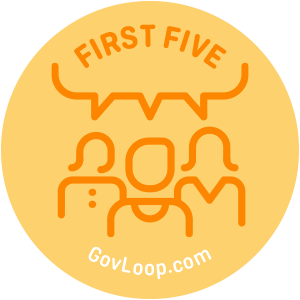What’s your idea of success? A self-made, charismatic leader? An independent professional whose super power is making the best decisions without any input? As a generation, millennials admire independence and even see it as a virtue. But when it comes to professional growth, the reality of success is a little different.
The truth is – no matter how smart, driven and charismatic – no one can go it alone in their professional journey. That’s why – especially for young professionals who lack the experience of their older counterparts – it’s critical to seek out others and ask for help.
Too often, we may miss out on opportunities because we limit ourselves and try to accomplish everything on our own. But when you ask others who’ve succeeded, they often attribute it to the people in their network. That’s why it’s critical to find and establish relationships with these four types of people:
1. Ally – Someone who will cover your back, even when you’re not in the room.
Develop alliances with teammates, peers or colleagues – even those your age. Like the reality TV hit, Survivor, you and the other person can pledge to defend or support each other when necessary.
Of course, you would only enter into this type of an agreement with someone whose work you can feel good about endorsing. This relationship would also be a type of peer mentoring where you can both learn from each other.
2. Advocate – Someone who can be described as “your biggest fan.”
This person is someone who already has credibility in the organization. She may be your future manager or someone higher in the organization’s ranks. This person needs to understand your professional and personal goals.
Try to have at least one meeting every month or so to share your plans with them and seek their support. For example, invite them to lunch and ask if you can pick their brains on some ideas or questions you have. Ultimately, your advocate should be your champion ready to vouch for you and help advance your career.
3. Mentor – Someone who can be a go-to resource for answers and help.
When you have 1,001 questions about that upcoming job interview or next steps in your career, this is the person to solicit for advice. You can definitely have more than one mentor. One may help identify your best skills and how to develop them. Another may help you practice a difficult conversation you need to have with a boss or coworker. Your mentor may be younger or older. She could even be someone with specific skills and knowledge about a topic you want to learn more about.
While your relationship doesn’t need to be formal or long-term, it does need to be mutually beneficial. Make sure you are giving back and showing appreciation whenever the opportunity arises – like taking them out to coffee.
4. Sponsor – Someone who is similar to an advocate but is more of an “internal cheerleader.”
This means they’re limited to helping you within a certain organization. Some agencies have formal sponsorship programs, but if your organization doesn’t have one, you can seek a leader internally who would be well-suited to provide guidance.
Choose someone who understands the internal career path. They should know what skills you need to develop and what projects or people you need to align with for greater exposure. Make sure to meet regularly with your sponsor and follow through on actions they suggest.
You can have the most impressive resume or be the best at what you do. But no matter where you are in your career, it’s always okay – even necessary – to ask for help. Finding your ally, advocate, mentor and sponsors can go a long way. And, more importantly, you can even make a few lifelong friends.
To learn how you can get these relationships started on the right foot, read more here.
This article was originally posted June 25, 2017.
This post is part of GovLoop’s millennial blog series, First 5.
